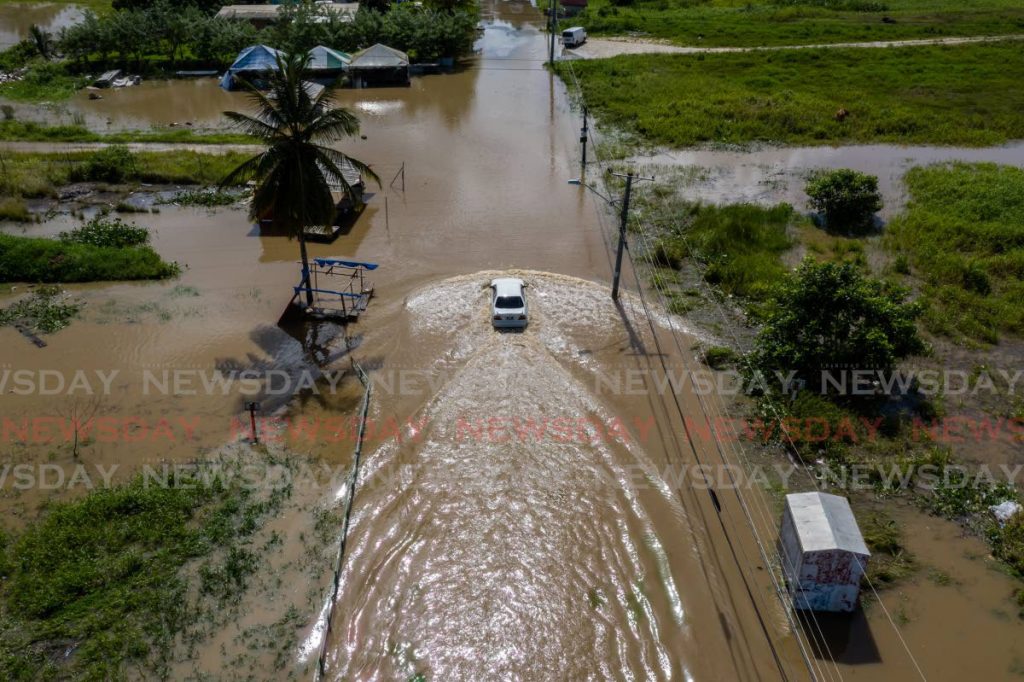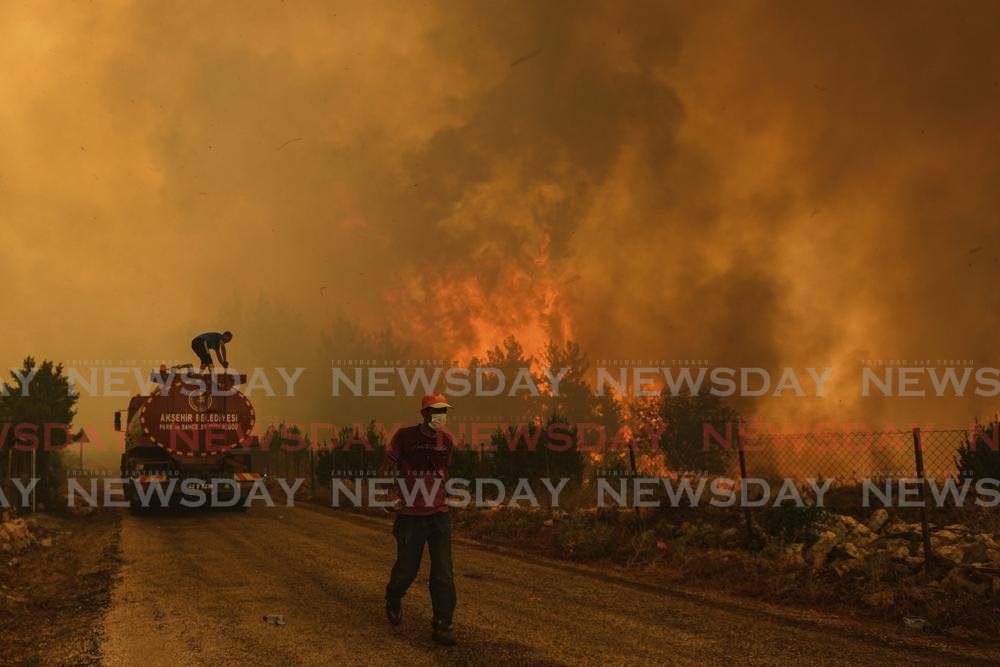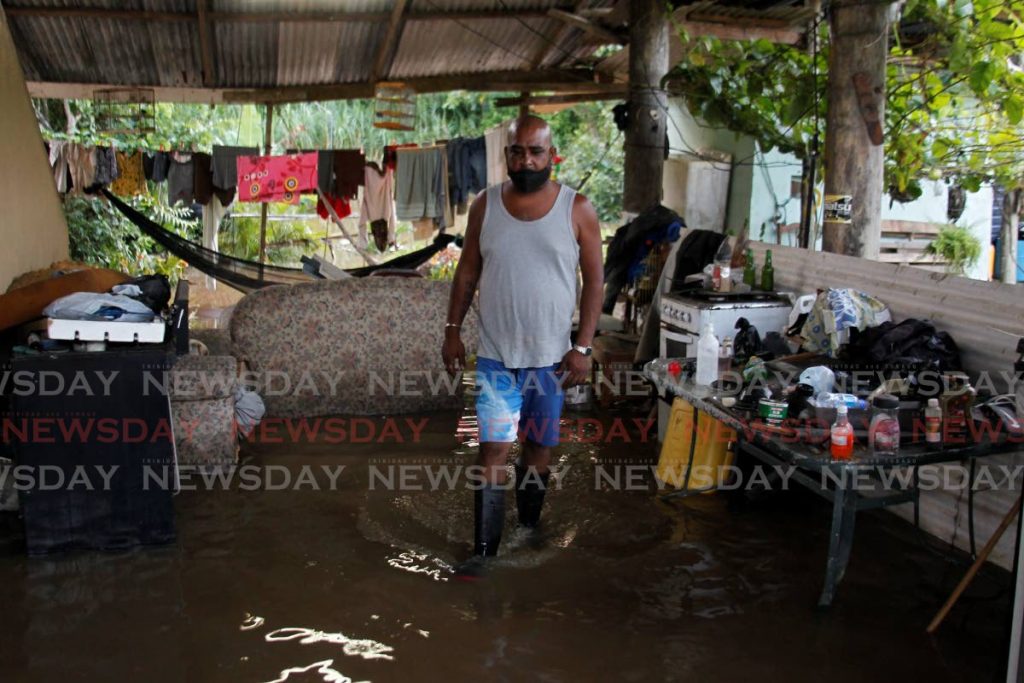Multi-stakeholder approach needed for disaster preparedness in Trinidad and Tobago

Disaster preparedness and management requires planning and there are several phases involved in the cycle. In this two-part series MELISSA DOUGHTY speaks with the CEO of the Office of Disaster Preparedness and Management and the director of the Tobago Emergency Management Agency about Trinidad and Tobago's readiness to deal with disasters.
Disastrous events are commonplace in the news. And it’s not just in TT but around the world, with reports like the recent flooding in China and Germany, wildfires in California, and the effects of the covid19 pandemic topping the headlines.
The images are jarring. People wading through large bodies of murky water that encroached on their living spaces, search and rescue teams picking through rubble after earthquakes to find survivors, and homeowners looking on helplessly as all their material possessions go up in flames before their eyes.
Biological, hydrometeorological, environmental, seismic, social organisational and industrial/technological are among the types of hazards that are of greatest concern for TT. But is the country ready for them?
While every hurricane (June to November) and rainy season (June to December) might bring this into even sharper focus, the growing number of other potential disasters means that it should become an everyday focus.
The Office of Disaster Preparedness and Management (ODPM) and the Tobago Emergency Management Agency (TEMA) believe an all-of-society approach is needed for an adequate response to disaster risk in TT.

When asked about perennial flooding in certain areas in TT, CEO of the ODPM retired major general Rodney Smart told Newsday it is all about how disasters are managed, especially in the age of climate change.
“When you get a month’s rate of rain in a day or two, whatever you have cannot control that.”
He said hazards are managed through all phases of the disaster management cycle, which includes prevention, mitigation, preparedness, event, response, recovery and rehabilitation. He said the Ministry of Works would usually set out to clear drains from as early as January and February before the rainy season began. But
with increased rainfall, increased intensity and some area being within what he termed the "hot zone," the drainage was unable to cope.
Smart said there are two projects that the ODPM, the Ministry of Planning and Development and the Ministry of Works and Transport Works are involved in as it regards flood alleviation.
“These are long-term projects and it would take some time before we feel the full effects of those projects.”
Showing its growing metrics on its various social media pages in an attempt to make more people disaster aware, Smart said TT needs to reach a point where communities take greater responsibility for disaster readiness.

“Communities have to be able to take the initiative. While the government is working on one hand, they too must work on the other hand.”
He said there must be a multi-stakeholder approach to disaster.
“So the person in the community who has heavy equipment," he said, can be part of the disaster readiness team, "once he or she sees themselves as having a responsibility to help that community.”
He said people need to be more conscious of their environment, noting that there are people who still dump bottles and other waste on the roadways and watercourses. He said consistency in non-pollution is necessary.
Smart said the ODPM's approach to dealing with any form of disaster is evident in how it addressed the covid19 pandemic. While the Ministry of Health led TT’s response, the ODPM assisted in doing so. He said the first step the office takes in addressing any type of disaster is preparation.
“Everything the ODPM does is related to that disaster management cycle,” Smart said. So when it recognised what was happening in China, it sent thermometers – purchased for early detection of the Ebola virus – to TT’s airports as it prepared the country for the pandemic. The ODPM also began asking the various embassies for assistance, Smart said.
The Minister of National Security also received thermometers from the Chinese and US Embassies through the ODPM’s work, Smart said.

Through the Caribbean Disaster Emergency Management Agency (CDEMA), the ODPM received stocks of personal protective equipment (PPE) for first responder agencies. The office also assisted in getting over 500,000 face masks and sanitisation items for first responders, assisted in the establishment of shelters and is now involved in the recovery process. He said even in addressing the issue of how people gathered in the shelters, his office worked with its stakeholders to ensure that that is smoothly handled.
Smart said if there was a hydrometeorological event, such as a hurricane, and people had to be evacuated into shelters, that responsibility was with the Ministry of Rural and Local Government supported by agencies such as the Red Cross.
But, he said, as was done last year – and will be done again this year – the ODPM, with its partner agencies, met on how it would address sheltering people during such an event during the pandemic. One part of the plan is to have more shelters to keep people safely spaced.
”There are already plans in place should we have to evacuate people to shelters and we will exercise that plan.”
The ODPM is also a part of the government’s multisectoral team dealing with post pandemic.
Smart said there are some things that can be improved and these are being worked on.
He said one of the things TT needs when it comes to disaster risk reduction is policy.
“So we have started to take a policy initiative which has been embedded into legislative change...” which are currently taking place.
He said TT is fortunate to have a receptive administration that supports the ODPM’s initiatives.
He said Minister of National Security Fitzgerald Hinds also recently signed off on an agreement between the UNDP and the ODPM to assist the national agency responsible for forecasting the rise of water levels in our waterways. This project, he said, is going to help communities to become more resilient. Ultimately, Smart said, the ODPM is driven by making TT more disaster ready and resilient.
Look out for Part 2 in tomorrow's Newsday.

Comments
"Multi-stakeholder approach needed for disaster preparedness in Trinidad and Tobago"